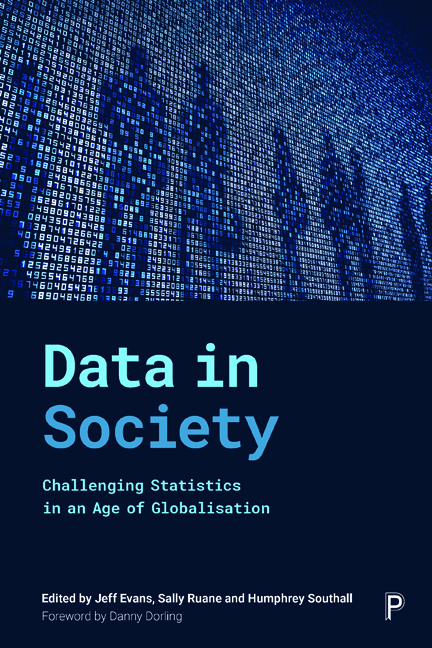Book contents
- Frontmatter
- Contents
- List of figures, tables and boxes
- Notes on contributors
- Foreword
- Preface
- General introduction
- Part I How data are changing
- Part II Counting in a globalised world
- Part III Statistics and the changing role of the state
- Part IV Economic life
- Part V Inequalities in health and wellbeing
- Part VI Advancing social progress through critical statistical literacy
- Epilogue: progressive ways ahead
- Index
Part IV - Economic life
Published online by Cambridge University Press: 30 April 2022
- Frontmatter
- Contents
- List of figures, tables and boxes
- Notes on contributors
- Foreword
- Preface
- General introduction
- Part I How data are changing
- Part II Counting in a globalised world
- Part III Statistics and the changing role of the state
- Part IV Economic life
- Part V Inequalities in health and wellbeing
- Part VI Advancing social progress through critical statistical literacy
- Epilogue: progressive ways ahead
- Index
Summary
Even if we no longer see ‘statistics’ as by definition about the state, the most available statistics still come from and largely concern government; and this was reflected in Part III. In fact, most of the earliest quantitative data, before the first census, were financial, especially records of the tax system, but over the last hundred years these have often been the almost exclusive domain of economists, frequently arguing particular pro-free market positions. Economic debates tend to focus on theory; data, to the extent that they are involved at all, tend to be presented as unproblematic. In this Part we show how basic economic data are often simply lacking. Thus, for example, the lack of reliable data on financial derivatives, notably securitised mortgages, was at least partly responsible for the 2008 crash; and we often need detailed investigation to unearth how exactly data sources and methodologies shape our knowledge of economic fundamentals, such as income distributions and unemployment.
The first two chapters focus on the economic lives of individuals and households. Stewart Lansley (Chapter 14) addresses arguably the most basic of economic questions, the distribution of incomes. He argues that the recent political emphasis on the extremes of inequality, epitomised by the Occupy movement's campaigning against ‘the one per cent’, was made possible only by new and detailed academic research. Specifically, and shedding an interesting light on the discussion of administrative data in Part I, a focus on the differences in earnings between the top and bottom fifths, measured by sample surveys, was supplanted by a focus on the growing gulf between the top 1%, and even the top 0.1%, and everyone else, measurable only through large-scale analysis of tax returns. Lansley then focuses on trends post-2008 in the UK, showing that government claims that inequality is declining are based on cherry-picking data.
Paul Bivand (Chapter 15) then looks in more detail at traditional labour market statistics, and in particular at how we measure the unemployment rate and wage inflation. He shows how the former is based on particular definitions of who is ‘employed’, who ‘unemployed’ and who ‘economically inactive’, all of which are informed by economic theory and open to challenge. Similarly, earnings data exclude large parts of the workforce.
- Type
- Chapter
- Information
- Data in SocietyChallenging Statistics in an Age of Globalisation, pp. 183 - 186Publisher: Bristol University PressPrint publication year: 2019
- 1
- Cited by



